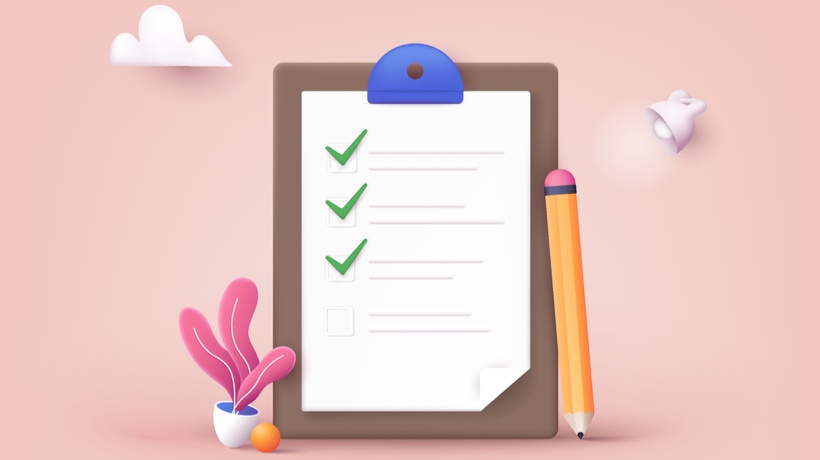What Are Onboarding Documents For New Hires?
Every person starting a new job feels some level of stress and anticipation, eager to take on new challenges but also unsure of what they'll encounter. On top of that, they have to fill out a ton of paperwork that comes with a new position, which doesn't always simplify the onboarding process. From the employment contract to company guidelines, new employees have to study a lot upon arrival and deliver the necessary documents on time for a smooth onboarding process. Below, we'll explore the types and examples of onboarding documents that new hires must complete and guarantee a problem-free beginning at the company.
Types Of Onboarding Paperwork
Legal And Tax Onboarding Documents
Legal documents ensure that both the employee and the company are on the same page. This means that both parties are informed about everything related to the new position, like roles and responsibilities, salary, and other expectations, such as confidentiality agreements. As far as taxes are concerned, these documents are needed to determine the employee's income and eligibility to work in the country.
Role-Specific Onboarding Documents
These documents act as a guide for a new role, aiming to help employees succeed in it much faster. They cover everything from job descriptions to training resources so that every new hire has instant access to all the tools and technologies needed to excel. As an employer, it's not enough to just hand out whatever document is necessary for the government, but also to make certain that no one feels confused during their first days in the company.
Company-Specific Onboarding Documents
Every newcomer in your company must be completely informed of the ins and outs of your organization. They must know what's expected of them in terms of behavior, what the company's values are, how the culture is built, and generally, how you operate things. For example, if formal attire is needed, they must know it before arriving at work with jeans. And if a misdemeanor such as harassment happens, they need to know about the reporting procedure.
Pay And Benefits Onboarding Documents
Your employees surely appreciate benefits, so it's important to inform new hires about these extra perks early on. Health insurance, extra days off, parenthood initiatives, or retirement plans, all may need some personalization before you implement them in your new member's employment contract. For instance, they may require a dental care addition to their insurance or ask for more withholdings in their retirement plan. Every person is unique, and by planning their benefits plan collaboratively, you show them that the company cares about their needs.
15 Most Important Onboarding Documents And Paperwork For New Hires
1. Offer Letter
This is the document that confirms all the important details, like the job position, salary, benefits, and start date. Once employees receive the offer letter, they must review it carefully to ensure that all the details are correct before accepting the job offer. This document also outlines their responsibilities, working hours, vacation and sick leave policies, and any other important information.
2. Employment Contract
An employment contract tells your new hires all the details about their job. It's like a roadmap for your journey with the company. It covers things like the job title, responsibilities, working hours, salary, and any extra perks. It's a legal agreement that makes sure everyone knows what to expect and what they're supposed to do.
3. Employee Handbook
An employee handbook is basically the book of the company's golden rules. It includes everything newcomers need to know, from what to wear to how much vacation time they get. It's also handy to have around because they can refer to it whenever they need to know their rights and responsibilities.
4. Benefits Forms
Most companies offer desirable benefits like health insurance, retirement plans, and other goods. But before your new employees get too excited about all that, they have to make sure they read all the paperwork you hand them and pick the stuff that works best for them. For example, they must check out health insurance options and see which one covers their needs best without costing too much.
5. Tax Forms
Tax forms exist to make sure that your company withholds the correct amount of taxes from the employees' paychecks, as required by the government, while also verifying their eligibility to work in the country. This process involves collecting some information from newcomers, like their name, social security number, and other details, to ensure that everything is compliant with tax regulations and laws.
6. Direct Deposit Authorization
It's much more convenient and secure for your employees to set up a direct deposit for their money since paper checks are outdated. By doing so, they make certain that their funds are transferred straight into their bank account without any delay. This means no more waiting in line at the bank or worrying about lost or stolen checks. Plus, direct deposit is a safe and reliable way to receive payments.
7. Emergency Contact Information
As a company, you want to make sure that you are always there for your employees, especially during unexpected events. To be able to reach out to them in case something happens, your new employees need to provide you with their accurate and up-to-date contact information. This includes their phone number, email address, and emergency contact details.
8. Confidentiality Agreement
You must remind your new hires of the importance of protecting sensitive company information. To maintain the security of sensitive data, they need to sign this agreement and show you that they understand how vital it is to keep the workplace safe and secure. However, they should also know they can reach out to you in case they have questions or concerns.
9. Non-Disclosure Agreement
A Non-Disclosure Agreement (NDA) is a legal document that keeps employees, contractors, or partners from sharing confidential information, trade secrets, or business strategies. This means they can't talk about sensitive info with anyone else outside of the company. When someone signs an NDA, they agree to keep everything they learn during their employment or engagement with the company confidential.
10. Code Of Ethics
Every company has its own unique set of values and ethical standards that shape its culture. By getting to know these, new employees ensure that they're a great fit for the company and its team. They can start by reading up on the company's mission statement, code of conduct, and other policies that help define its culture.
11. Safety Procedures
Your staffers' well-being matters. By taking the time to review safety protocols with your team, you're taking a step toward identifying potential hazards and ensuring that everyone knows how to stay safe on the job. It's all about creating a culture of care and responsibility and empowering your team members to take an active role in their own safety.
12. Policies Acknowledgment
All of your new team members must feel comfortable and happy in their workplace. That's why they need to go over some of the policies to maintain a positive environment. From guidelines around social media use to what to do in case of harassment, these will protect everyone's respect and safety.
13. Intellectual Property Agreement
If your new employees work on creating intellectual property, like software code or designs, it's important to make sure that everyone's on the same page about who owns what. That's where this agreement comes in handy. With an intellectual property agreement, you can also protect your company's interests and have full control over the use and distribution of the work produced by your talents.
14. Performance Review Process
New hires need to know what's expected of them and how their performance will be evaluated. By setting clear expectations and goals, you can help them understand what it takes to succeed and make a meaningful contribution to your company. And when they know what to aim for, they can set their own goals and objectives.
15. Welcome Packet
Lastly, your newest additions to the corporate family deserve a big, warm welcome. Put together a packet with resources that will give them great insight into your company's culture and an overview of their onboarding process. The packet can also include personalized goods, like mugs, pens, notebooks, or a gift card.
Conclusion
These documents are surely essential for a smooth onboarding process, but you may think that you will lose track. Thankfully, there's a solution to that, and it's employee onboarding software. Both you and your employees can easily organize and access all your essential documents with just the click of a button. Whether you need to review an offer letter or update emergency contact info, it's a breeze for you and them. The software can even help you automate tasks like filling out tax forms so you have more time to focus on other important tasks. Plus, the system sends you reminders and notifications, so you'll never miss a deadline on important documents again.









